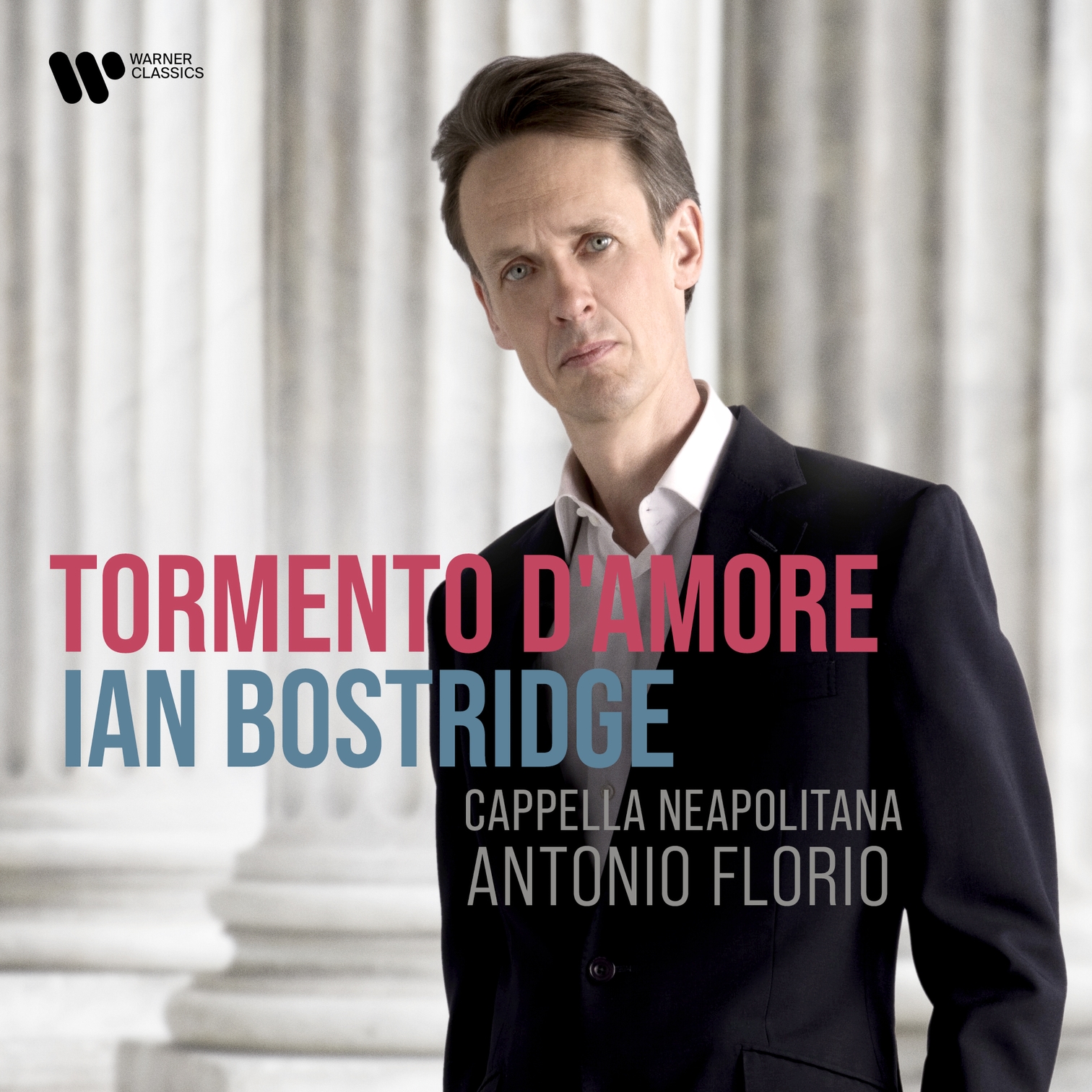Arias by Sartorio, Cavalli, Stradella, Cesti, Caresana, Provenzale, Legrenzi, Vinci, Fago and Vivaldi
Ian Bostridge Tenor
Capella Neapolitana
Antonio Florio Director
Warner Classics 0190295037079
Full price

The Review
As one would expect from a historian of Bostridge’s calibre this is a superbly constructed survey of the way the Venetian operatic style of the early 17th century, developed by Cavalli, spread South to Naples, was followed and adapted there, and came back to Venice reinforced in the 18th.
While Cavalli and Vivaldi bookend the recital and are the most familiar names, Bostridge has chosen arias that show those composers more famous then than now – Antonio Cesti, Alessandro Stradella, Giovanni Legrenzi and Leonardo Vinci (no ‘da‘ in there and a very different character from his artist namesake of two hundred years earlier) – to fine advantage. By including pieces by even less well known names – Antonio Sartorio, Cristofaro Caresana, Francesco Procenzale and Nicolo Fago – Ian Bostridge demonstrates the sheer consistency of the quality Venetian and Neapolitan audiences could enjoy. Stradella’s Soffrira sperera from Il Corispero and Caresana’s Tien ferma fortuna from La Avventure Di Una Fede have not been recorded before.
This is gorgeous music, gorgeously played and sung. Bostridge’s voice has darkened over years so that, while his range is complete, the tenor tone has a baritone timbre very different from the English cathedral sound or the strident Italian. It is devoid of either reverend purity or histrionics. The music is presented with firm and masculine conviction. Capella Neapolitana accompany him with superbly integrated playing, far more unified than many groups of their ilk. They match the kind of intelligent attentiveness one has come to expect from ensembles like Arcangelo and Europa Galante, as they demonstrate too in the refined instrumental sinfonias dotted among the vocal items.
This is very gentlemanly music making. Recorded in a suitable chamber in Naples, the Palazzo Positano, all is elegant and smoothly polished, matching the late baroque liking for gesture over stage action. The torments are restrained, matters for resigned regret rather than the beaten breast. The slight trouble is that this means the arias tend to flow into each other for much of the disc without much individual impression. This changes greatly for the better when they move into the later repertoire and tackle the two wonderful arias from Vinci’s Siroe, Re di Persia (Se il mio paterno amore and Gelidi in ogni vena) which are given with a welcome injection of energy.
This is carried on through Fago’s Nuove straggi, e spaventi from Il Faraone Sommerso. The instrumental opening of the piece that follows, Gelido in ogni vena from Il Farnace by Vivaldi feels nicked cleverly from his own Winter. Yes, these are the same words set by Vinci, and with similar decorative flourishes, but Vivaldi’s setting is much slower and Vinci’s melody is far catchier. There has been a welcome reassessment of Vinci’s calibre in recent years and his Neapolitan school was badly underrated by critics in the 20th century. For their finale, Bostridge and Florio turn to traditional Neapolitan song and relax. It is almost certainly not their intention but Lu Cardillo (The Goldfinch) is the highlight of the record.
SM
